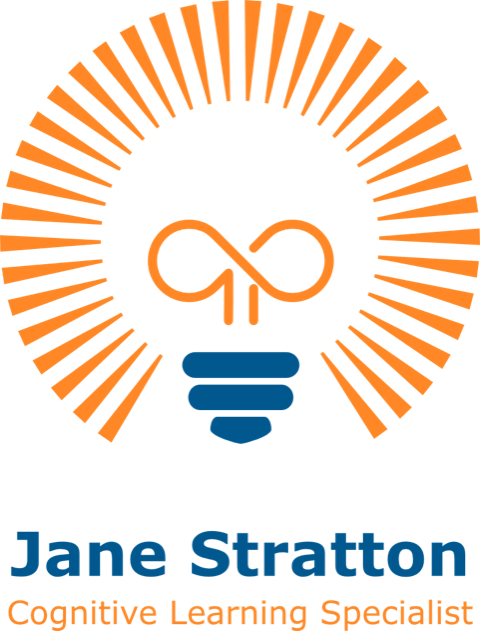Blog Layout
Lewis's Story, North Lanarkshire
Jane Stratton • June 21, 2020
Lewis's Story; Belief Brings Success
When Lewis’s mum, Margo, contacted me late in 2019, she was concerned and anxious about her son. He was falling behind in Biology (and other subjects) yet she knew he was bright. She spoke honestly about her feelings regarding how 3rd year was going and that it seemed school staff had given up on him. She was upset and as a secondary school teacher herself, she was well aware that it was only a matter of time before Lewis’s self-esteem and confidence hit an all-time low resulting in him giving up on his education altogether. Feeling that the clock was ticking and clearly extremely concerned, she asked for my help.
“The teachers just don’t understand him and I’m so worried now.”
Margo seemed desperate; she described being called to the school about Lewis’s behaviour numerous times and explained that he was on a daily behaviour report card, having been suspended on many occasions. I was not shocked. I had heard similar stories before and felt instinctively that there was more to this than behaviour. As Margo described some instances of the ‘bad behaviour’, a familiar pattern was emerging.
Margo described Lewis’s love (and skill) for playing rugby, going to the gym and eating well. He is very interested in nutrition, self-discipline and gaining knowledge. He takes care of his appearance and was described by his mum as both caring and sensitive. Does this sound like a boy with behavioural issues?
When I first met Lewis, I was struck by his manners, his intense, in-depth knowledge, and his very caring nature. However, I was also struck by his low-self-esteem, lack of self-worth and despondency about what was going on at school.
“I just can’t concentrate on doing well at school when I worry about going home to get a row because mum has been called by the school about my behaviour. I just put all my effort into trying to behave.”
Together, we developed a plan. I told him that I believed that we could get his marks up quickly as his knowledge was phenomenal; he seemed truly amazed and perhaps a little doubtful. This fuelled my fire even more! One thing I have learnt over my years of tutoring is that behaviour is merely a form of communication and it is very important that we as adults acknowledge this. In order to allow youngsters to thrive and reach their potential, we must first show them that we are on their side, that we are interested in them and that we believe in them.
By our second session, I could see some very familiar signs…. he was stumbling over words, misreading questions and struggling to coherently put his knowledge on paper. He was also very impulsive in his answering and described to me his difficulties in school around focus, processing and sitting still. We had lots of discussions and I carefully gathered as much information as I could. Meanwhile, he was going from strength to strength in terms of his confidence and knowledge of biology, which was already extremely good if a little hidden.
After four sessions, I decided to speak to Margo in order to discuss my thoughts about Lewis’s challenges. I had developed a great rapport with him and his enthusiasm and interest for biology was increasing faster than I had ever seen before. He said that he felt relieved that someone believed in him and he said it was giving him a real boost. I was sad that this had not been happening for him in school as he is a truly brilliant, animated and fascinating young man.
My discussion with Margo centred around assessment for both dyslexia and ADHD with some urgency. I explained the reasons for my advice, and she seemed relieved. Margo recognised that Lewis knew right from wrong and was exhausted by the school’s attitude towards him. It became even clearer to me just how distressed and drained both Lewis and his mum had become. Margo immediately contacted Linda Kerr,
the specialist dyslexia assessor that I hold in very high regard.
Lewis is dyslexic! He has an amazing brain allowing for great skills, intense interests and fabulous determination. He is an extremely intelligent young man, with great potential, however he has some specific challenges and he is now well on the way to having these diagnosed appropriately; he is now awaiting assessment for ADHD and Meares Irlen. I am so relieved for him as he is flourishing with the added insight into his unique way of thinking.
“I’m learning how I deal with certain situations and I am teaching myself better ways.”
This remarkable young man has taken the time during lockdown to focus on his subjects, learn more about himself and how to make the best use of the opportunity he has been given. Time out of school for Lewis has quite literally transformed his life. We have continued with weekly online biology sessions and he has decided that he wants to carry on throughout summer. We focus on strategies to lessen his impulsivity when answering questions and use simple tricks to correctly decipher questions and plan his answers. I relate as much biology knowledge as possible to Lewis's interests, in particular rugby and fitness training; this helps him relate to the course content. He gets 100% often in his homework and he researches around the topics more than any pupil I have worked with before.
“I’m buzzing to go back to school!”
Lewis is now looking forward to returning to school. He hopes his teachers will recognise the positive changes he has made to his work level. He is committed to getting great National 5 Grades next year and he has his heart set on a career in biological sciences, being on track for an A in the subject. Lewis should be immensely proud of his achievements and his perseverance when so many professionals had given up on him.
One thing that we must all remember in life is that every single youngster needs to know that we believe in them, that we have their back and that they are highly valued. This story is a true example of what can be achieved when we approach young people with this attitude and take time to translate the message that their behaviour has been communicating.
Please read Katrina's story
here.

By Jane Stratton
•
March 14, 2023
WOW!
JUST WOW!
Imagine me open-mouthed and lost for words! Quite difficult? That’s because it doesn’t happen often.
However, that was exactly what happened at the end of the most amazing workshop I attended yesterday at the ITAKOM conference.
Hands down, it was the most effective and informative session about neurodiversity I have ever attended (and I have attended quite a few).
The reason it was so good? It was delivered by a group of neurodiverse young adults from the Neuropoint Stakeholders Group from the Salvesen Mindroom.

By Charlotte Kirkwood, Kirkwood Tutoring
•
July 23, 2021
It's hard to believe that I've been doing this for a year now. Sitting down at my computer a few times a week and getting to speak to unique, intelligent and wonderful young people who all want to push themselves that little bit further. In light of this, It feels only right to reflect on what I've learned myself in this time. Spoiler alert; it's far more than I thought I would. Expect the unexpected It's safe to say I didn't think I was going to end up doing this, and I think that's a big part of what has made the experience so special. Life is so unpredictable, and for someone who loves to plan, it's huge for me to even say those words. But, more often than not, unpredictability leads to where you were meant to go. Don't fear trying something new, you might like where it gets you. Be willing to ask for help The only reason I am where I am is through the support of others. Be it Jane , for helping me get started with the business, to my family supporting me through it, and even to my friends for reassuring me when I wasn't sure if I could do it. Asking and offering help is, as we have all learned in the past year and a half, one of the most essential parts of our humanity. We undeniably need each other, and shouldn't be afraid to admit it. Never Underestimate Young People This is the second biggest lesson I learned. Every single young person I had the joy of interacting with over this first year has disproven every stereotype the world puts out there. They are all bright, brilliant communicators, funny, unique and caring. There wasn't one session where they didn't also ask me how I was before we started. Each one of them proved to me that they didn't deserve to be underestimated in the slightest. Pulling their grades up through hard work, teaching me something I didn't know, creating masterful pieces of writing, and even proving to themselves that they knew what they were doing. We need to listen more to our teenagers This, for me, is the biggest lesson for everyone who may come across this post. I have always valued the voices of our young people. I believe they're fundamental to our developing society and our future. Unfortunately, I know many who would rather believe the contrary. The individuals that I worked with over this year proved that young people deserve a say in their lives, their future, and their education. Many of them are passionate to take a stand for their peers, they just need the support. I love doing this. At the end of the day, it's simple. I always thought I'd be working with young people in some capacity, and here I am. Three weeks out from beginning my teaching journey, and from tutoring beginning again. I honestly cannot wait. Being able to make a difference, no matter how small, means a lot to me. I fell in love with this role over the last year, and I can't wait to keep going. So, to the Kirkwood Tutoring Class of 2021, I wish you all the luck in the world. You all deserve it 10 times over. And thank YOU, for teaching me and trusting me. I hope the world is kinder to you all this year.



